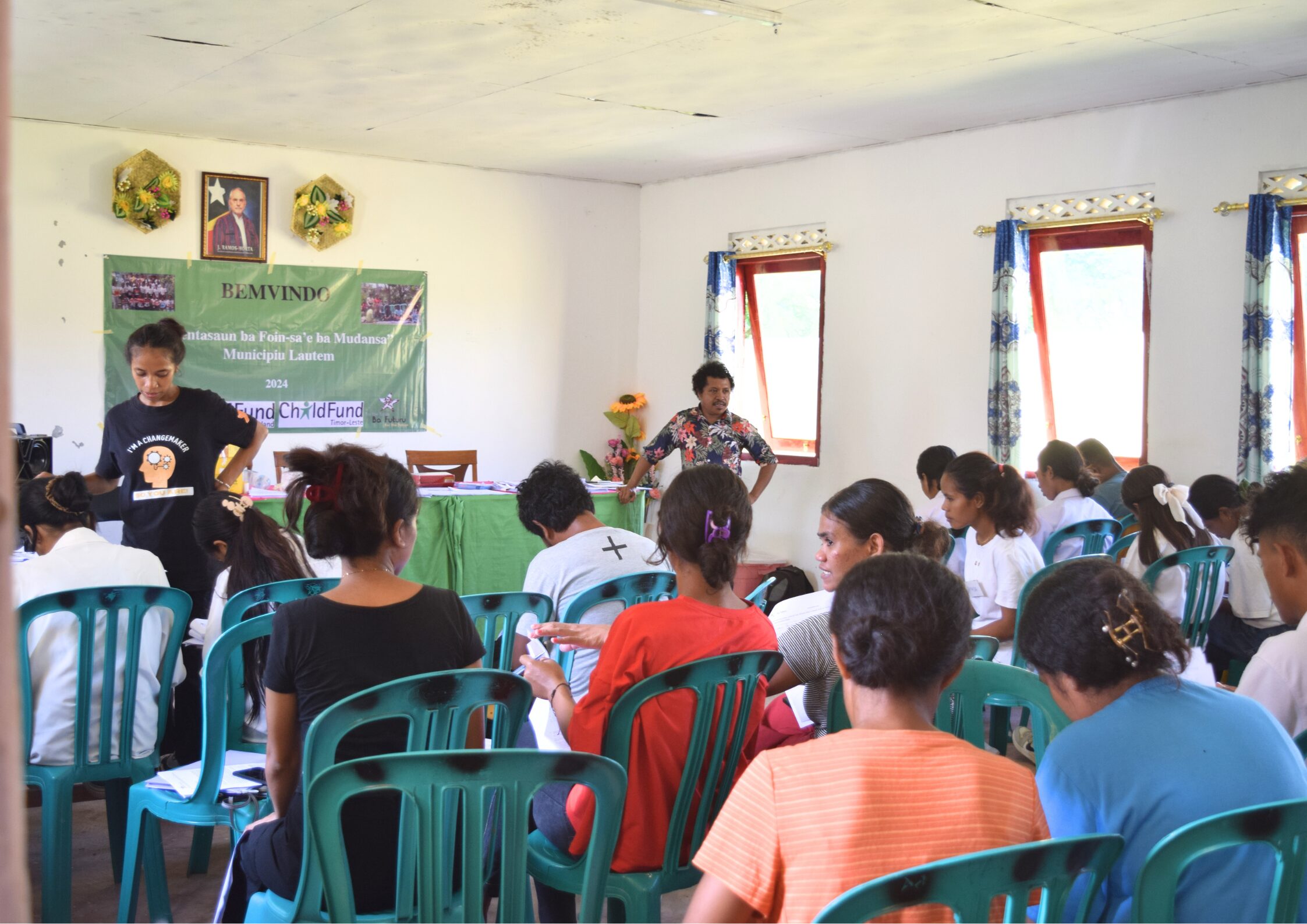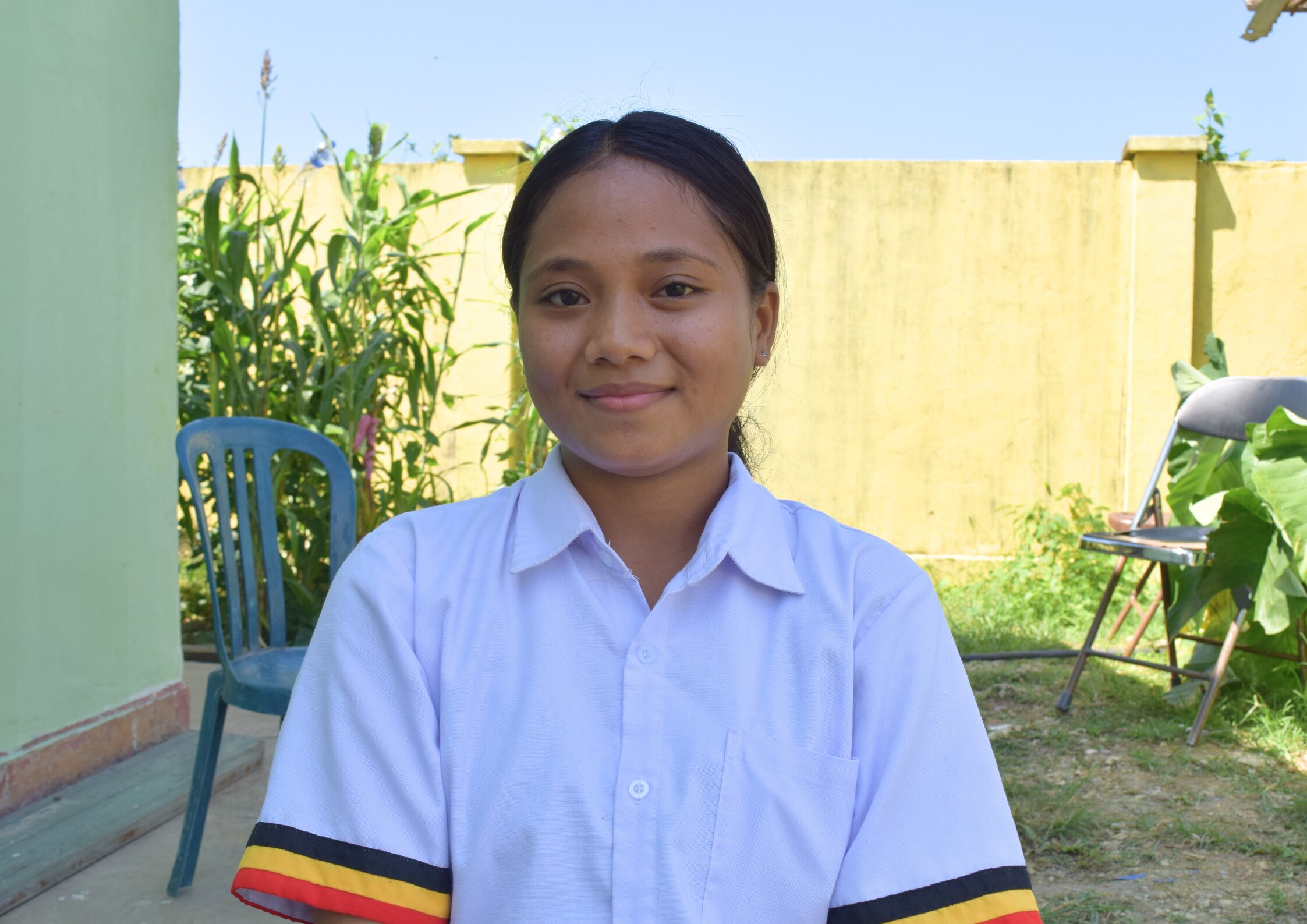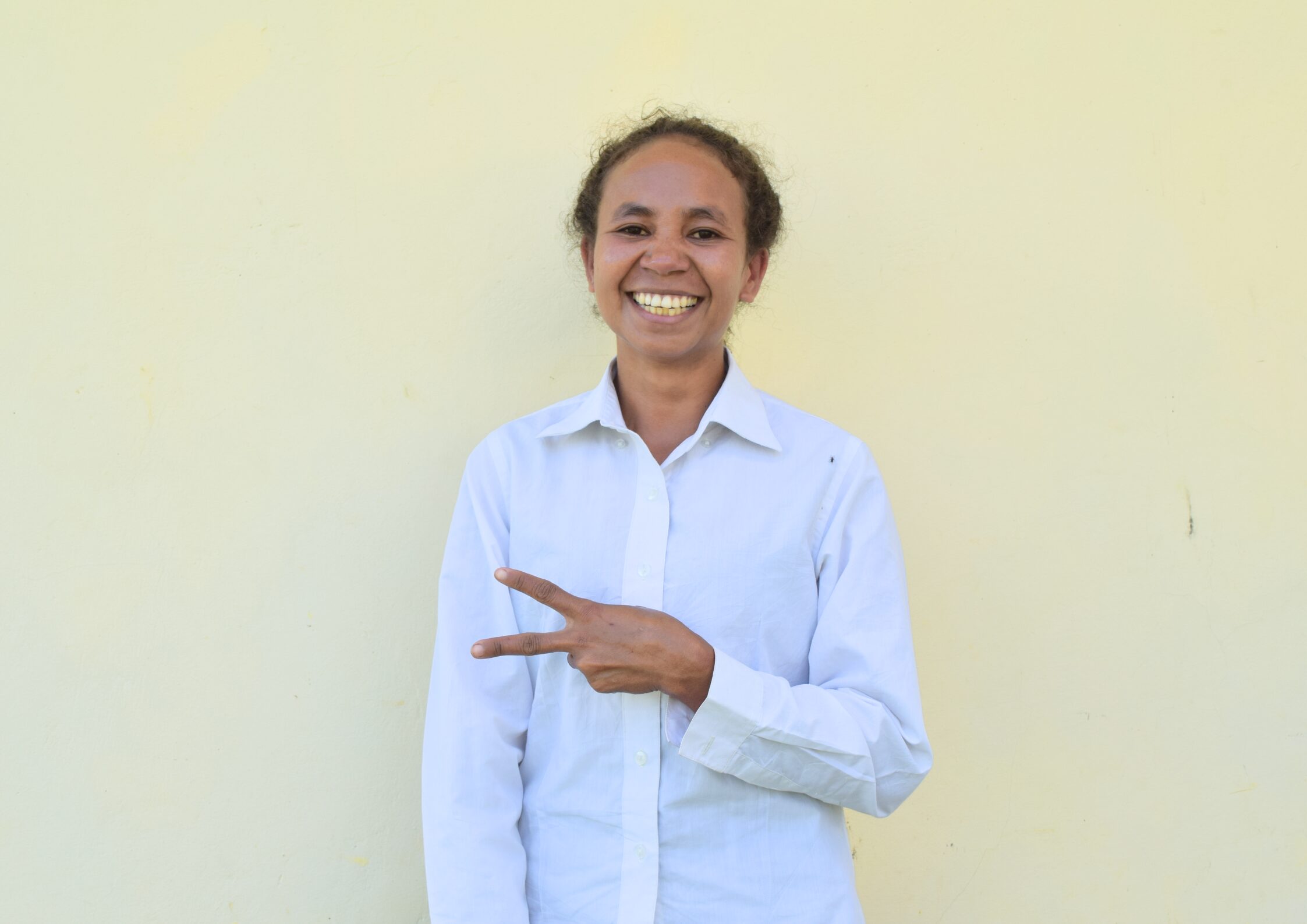Since he was little, Januario, now 17, has struggled to access clean water. Growing up in one of the most remote villages in Lautem Municipality, Timor-Leste, he would walk for 30 minutes daily with his eight siblings and other local children to collect water—and that was on a good day. It could take up to an hour if small children joined the pilgrimage.
“During the dry season, our closest spring dries up, so we would walk to other villages to collect water,” explains Januario. “If younger children came, we would have to slow down and wait for them to catch up.”
While some families could afford to rent trucks to carry their water, lessening the burden on children (“The trucks carry all the water in one trip”), Januario wasn’t so fortunate. “My parents relied on us children to collect water. It was our responsibility,” he says.
In 2021, Januario moved in with his aunt and uncle in Lospalos, a city in East Timor-Leste, to avoid travelling long distances daily to attend high school. He currently shares the house with eight other relatives from rural areas who are either studying or seeking better job opportunities. Januario says his younger brother will also be joining him soon, making it a total of 12 family members living together under one roof.
“Sometimes the water comes in the morning, sometimes in the afternoon. So, we have to be prepared and fill up our tanks and jerry cans because the tap only runs for a few hours. And then it stops. We will have to wait for it the next day.”
Despite the move, access to water remains an issue. “I thought that coming to live in town would be easier, but it is still the same. We still struggle with clean water,” says Januario. He explains that although the government provides clean water to every household in town, it comes at a cost, “We have the water piped to our house by the government, but we have to pay around USD$5 every month.”
The costs involved and the fact that water isn’t readily available (the government turns off the tap in the central system, and the cycle of water rationing isn’t always constant) mean Januario and his relatives only use the water for “drinking and cooking” as they wait for their water rations.
“Sometimes the water comes in the morning, sometimes in the afternoon. So, we have to be prepared and fill up our tanks and jerry cans because the tap only runs for a few hours. And then it stops. We will have to wait for it the next day,” says Januario, adding that he makes sure to get up early before school to collect water. “I walk 10 minutes to a well before school each morning to shower. If I don’t, I might not get another chance to wash all day.”
A lack of safe water and sanitation is also affecting children and young people’s learning and basic needs at school. Water is scarce, leaving students like Januario without access to clean water to drink and wash their hands. “We don’t even have water in our school toilets.”
Water and sanitation projects are critical to improving access to safe water in both rural and urban areas in Timor-Leste. Clean drinking and cooking water, adequate sanitation, and proper hygiene can prevent infectious diseases, dehydration, malnourishment, and early death and help reduce poverty. Spending hours a day travelling to collect clean water or thinking about when they can next shower can impact children’s ability to learn and rob them of their childhood. They lose precious time that could be spent studying, pursuing hobbies, or playing with friends.
ChildFund Timor-Leste is working with the local community to improve access to clean water and help solve the water scarcity issues. ChildFund has supported the construction of two concrete water tanks in Lospalos. Concrete water tanks help store safe, temperature-controlled, and portable water, which makes it easier for households to access it for their daily consumption.
“Water is very important. For children to have clean water, the government needs to create better facilities and pipe water for every house and school. It is not just the communities that lack water but also schools.”
As a newly minted Youth Changemaker, Januario is passionate about improving health and wellbeing in his community. The new water tanks are just the beginning.
“Water is very important. For children to have clean water, the government needs to create better facilities and pipe water for every house and school. It is not just the communities that lack water but also schools,” he says.
As a Youth Changemaker, Januario is learning life skills and how to best advocate for not only himself but also his friends, family and community. He is part of a group of 60 local young people from Lautem municipality attending ChildFund-supported training sessions and activities to build their confidence and leadership skills.
“I wanted to join because I think it will benefit me a lot,” says Januario. “I want to learn many new things, especially how to become a good leader. The Youth Changemaker program motivates us to learn more.”
Although he is new to his role as a Youth Changemaker, Januario is already making a difference by raising awareness and inspiring action to address the community’s water and sanitation crisis.
This project is supported by the Australian Government through the Australian Humanitarian Partnership. The Youth Changemakers program is implemented in Lautem municipality by ChildFund Timor-Leste and local partner, Ba Futuru.




